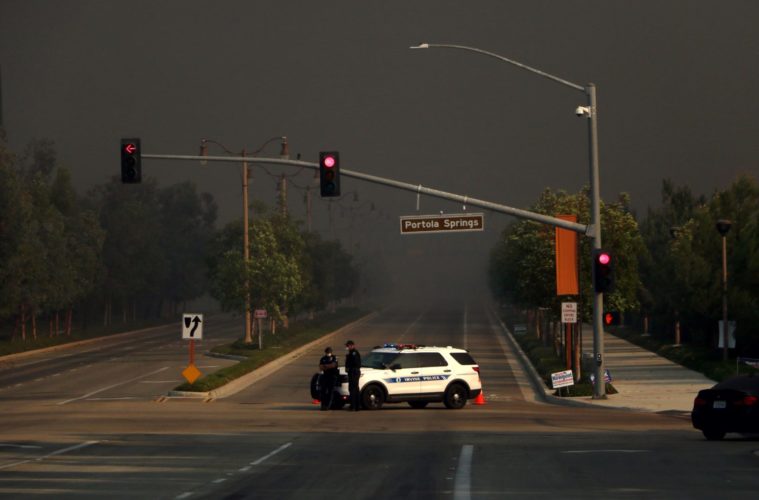Michael Prather, Professor of Earth System Sciences at UC Irvine, was recently highlighted as a contributor in the most recent climate change report released by the Intergovernmental Panel on Climate Change (IPCC), on August 9.
Prather provided some insight in terms of what the 2021 Climate Change Report concludes, how it impacts Irvine, and what can be expected from the report’s dire predictions for global ecosystems.
As part of the United Nations, the IPCC is the world’s leading authority on climate change assessment, and has been researching climate change since 1988.
While the IPCC’s 2021 Sixth Assessment Report is a report analyzing global climate systems, Prather, who worked as a review editor on the 2021 IPCC report, explained that this year’s report did not necessarily provide climate experts with new information. Rather, Prather explained that the report underscored the message that climate experts have been echoing for decades.
Based on the data, the latest IPCC report has confirmed that due to mankind’s inability to reduce the levels of greenhouse gas emissions — mainly Co2 and Methane — in the atmosphere, the Earth’s temperature will increase by more than 2° Celsius, further jeopardizing ecosystems around the globe.
“Methane is responsible, to date maybe, for a quarter of the climate change,” Prather theorized during a phone call with Irvine Weekly. “Co2 is interesting, because Co2, most of it is fossil fuel. There’s some from cement and land use. For Methane, there’s so many things — we have leakage of Methane from natural gas, we have fossil fuel exploration — which is responsible for a quarter of the Methane.”
Crossing this single digit threshold might seem insignificant, but according to Prather, there is no technology available that will help us correct this climate crisis, and there probably will never be. As environmental alarms sound, more populations will be forced to adapt to these environmental impacts at a rate never seen before.
“One item, no,” he said. “It’s people developing habits and patterns — generally more carbon neutral. One of the simplest ones that’s had a great fight in the U.S. is eating less red meat. If you look at the amount of kilogram to Co2 per kilogram of food, rice, chicken and eggs, like 1 kilogram, pork you get to about 3 or 4 (kilograms of Co2 per kilogram of food) — cattle is like 10 — just eating less red meat would make a significant difference in the U.S.”
Prather, who has worked at UC Irvine since 1992, where he served as Director of the UCI Environment Institute between 2008 and 2013, pointed out that he was not an author on this year’s report, but provided contribution as a review editor.
During his review, Prather says he was impressed by the level of detail available through this research, which allows experts to fill in the data gaps from the last seven years. However, looking back, Prather said it was a clear indication that the Earth’s temperature seems to be increasing by a tenth of a degree – every 10 years.
“Probably the most interesting thing this year is the level of detail on documentation on the systems that have been changing because we’ve had more time to observe them, because we have more statistics on them,” he said. “As a review editor this time, more and more details about regional small scale things happening, being reviewed, as to where the damage is occurring, how frequently — not just damage but things are changing.”
Prather also praised the IPCC’s Interactive Atlas, which he said gives users the ability to see projections in trends, based on patterns paired with numerous models.
“It is quite something,” Prather said, adding that the five minute operational tutorial is worth a watch. “What’s the projections of rain, likelihood of floods different models give. What’s more important is that the models are getting much better and our ability to go from global models down to regional impact — the science has gotten much better. Between higher resolution models, and between better ways of scaling from a model, might have only 100 kilometers, to something that might have a smaller impact.”
As environmental indicators, more frequent and prolonged flooding, droughts and wildfire are sounding the alarm globally, in an effort to combat climate change, the city of Irvine recently announced an initiative to transition to a carbon neutral economy by 2030.
“I’m proud of my city for having done that — that’s great. In that sense, it takes a village to raise a child. Everybody has to start doing something, and if nobody does, it’s not going to happen. If Irvine is the only city that does this it won’t make any difference on the climate,” Prather said. “But, if Irvine does it, then other people pay attention.”
Advertising disclosure: We may receive compensation for some of the links in our stories. Thank you for supporting Irvine Weekly and our advertisers.

